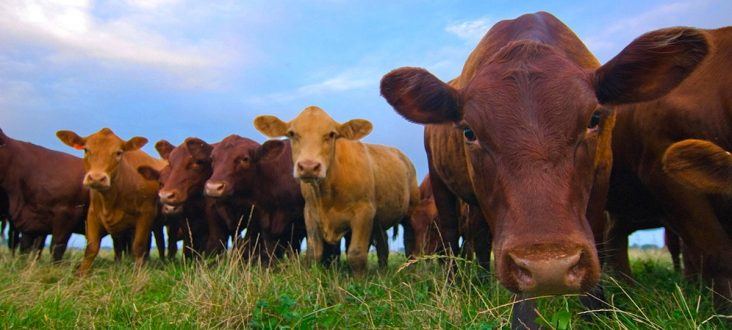Tyson, beef industry applaud full access for exports to Japan
by May 18, 2019 8:00 pm 1,230 views

Japan is the largest market for U.S. beef by a long shot despite some restrictions to variety meats and age guidelines that have been relaxed over the years. This week, U.S. Secretary of Agriculture Sonny Perdue said all the restrictions of U.S. beef exports to Japan were lifted immediately. This will pave the way for expanded beef sales to Japan by up to $200 million annually, according to a USDA release.
Tyson Foods, one of the largest meat packers in the nation, said Japan is an important customer for beef representing 20% of its exports totaling $440 million in 2017.
“We support open trade and are pleased Japan has broadened the scope of what it will accept. Japan is an important market for U.S. beef and we also encourage continued efforts toward a U.S.-Japan Trade Agreement in the near future,” said Liz Croston, a corporate spokeswoman with Tyson Fresh Meats.
She said since most of the beef Tyson Foods produces is from cattle under the age of 30 months, which has been the rule since 2013, the company doesn’t expect this latest change to significantly affect its business.
Travis Justice, executive director for the Arkansas Beef Council, said the packers and the industry have aligned with the 2013 rules for cattle under 30 months of age and that is most of the cattle processed.
“We had to enact an age verification program in 2005 when the first age restrictions of 20 months or younger were put in place by the Japanese. That was relaxed in 2013 to the 30 months or younger which is most of the market. The restrictions on variety meats such as tongue and organ have remained. This latest news lifts that restriction as well,” Justice explained.
He said variety meat is sold to Japan and now the scope of that could increase. Last month, Japan purchased 24% more variety meats on volume with a 19% increase in value.
Justice said Arkansas ranchers don’t sell directly to Japan, but if these export markets open up for primary cuts that are not really eaten in the U.S. it will add value all the way down the supply chain.
“Arkansas produces about 2% of the nation’s cattle which are sold to feed lots, purchased by packers and some of that is eventually exported to countries like Japan, Mexico, South Korea and Canada,” he said.
Last month, the U.S. exported 74,000 metric tons of beef to Japan, the largest market overall. Mexico was the No. 2 market for U.S. beef with 57,000 metric tons exported. South Korea is the fastest growing market, according to Justice, taking 56,000 metric tons of beef exports last month. He said Canada and Hong Kong round out the top five markets for U.S. beef.
Derrell Peel, livestock extension specialist at Oklahoma State University, told Talk Business & Politics the USDA announcement is positive for the U.S. cattle industry.
“Some packers have aggressive cow beef marketing programs and this will help them. It will help support cull cow prices. It may impact ground beef markets by changing the price/availability of lean cow beef. It might have some impact on beef imports as a result,” Peel said.
USDA said this agreement is also an important step in normalizing trade with Japan, as Japan further aligns its import requirements with international standards for bovine spongiform encephalopathy (BSE) also known as Mad Cow disease that disrupted trade between the U.S. and Japan in 2003.
